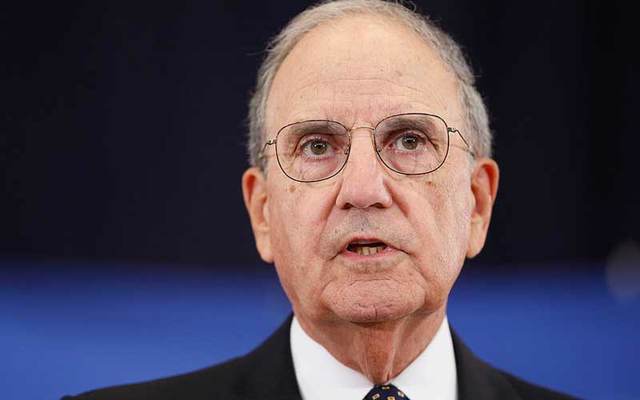The decision by 89-year-old Senator George Mitchell, who is suffering from cancer, to fly to Belfast next week where he will take part in the events surrounding the 25th anniversary of the Good Friday Agreement is typically heroic.
Mitchell joins many other leaders, including two American presidents, three British prime ministers, and several Irish leaders, in marking the occasion this week and next, and the document that made peace possible in Northern Ireland.
For the next few days, Ireland will become the focus internationally because of a rare, positive story on how to end conflict. It is doubtful that there is anyone more skilled than Mitchell, the architect of the agreement, in doing that.
His incredible determination to force through a deal in the North in the wee hours of Good Friday on April 10, 1998, showed a man of extraordinary political ability, able to draw together two hostile groups who had fought a bitter war for over 30 years.

Love Irish history? Share your favorite stories with other history buffs in the IrishCentral History Facebook group.
Mitchell was not alone in the quest for peace, of course. As we consider the landscape of Northern Ireland in 2023, it is clear there have been many architects of a peace process that still has defects, but which has decisively ended the armed conflict there.
The decision by President Joe Biden, for instance, to visit Northern Ireland this week, even though there is no functioning government there, is an example, all too rare in the world, of soft American power used for political purposes.
In addition, President Bill Clinton, who made so many critical decisions to get America involved in bringing peace to the North, has an immense store of knowledge to impart on where the peace process should go from here.
The 25 years between the Good Friday Agreement and this week’s commemorations have been full of setbacks, small steps forward, and oftentimes confusion as to where the process was headed.
But now there is perfect clarity. Tony Blair, John Major, Leo Varadkar, Bill Clinton, Hillary Clinton, and George Mitchell all agree on one thing – the restoration of devolved government at Stormont is the absolute critical next step for the Irish peace process to succeed.
When you have that kind of clout behind a goal, it could prove very difficult for anyone to oppose it. These are all leaders of immense stature who have great demands on their time, but they have set aside their time over the next few days for an attempt to push the boulder of devolved government to the top of the hill.
Bill Clinton made an extremely insightful comment in his op-ed in The Washington Post on Sunday, pointing out that Northern Ireland can become the go-to example of how Americans can get involved in resolving conflicts not by threatening air strikes, but by sustained effort and diplomacy on the ground.
There is of course still opposition to restoring the government at Stormont, led by the Democratic Unionist Party despite major efforts to bring them into the fold. If they think they can still cling to a unionist veto, despite the opposition of men such as Mitchell, they are sadly mistaken. They also need to take a look at the demographic map in the North and realize they are no longer in charge and never again will be.
Peace in the North these past 25 years has sometimes been uneasy, but it has endured. The work continues of holding it together so peace can never be sundered again.




Comments